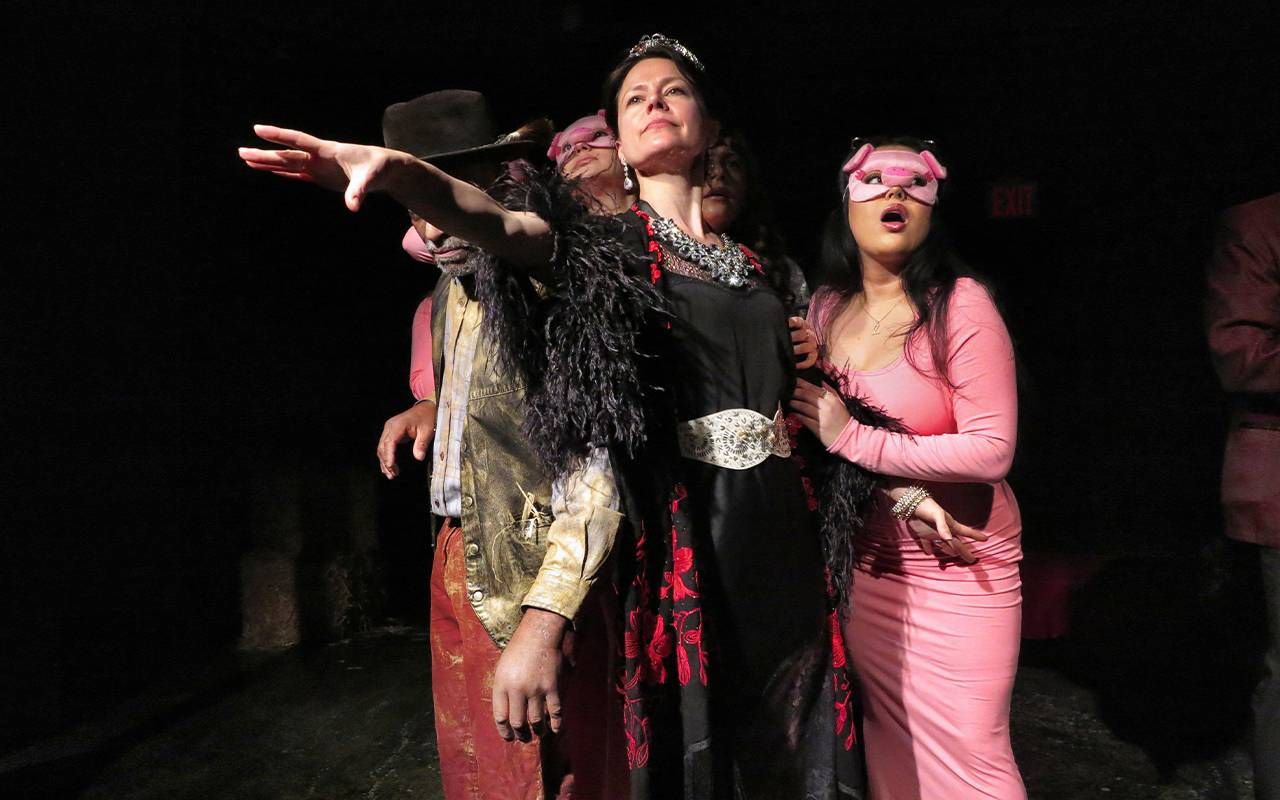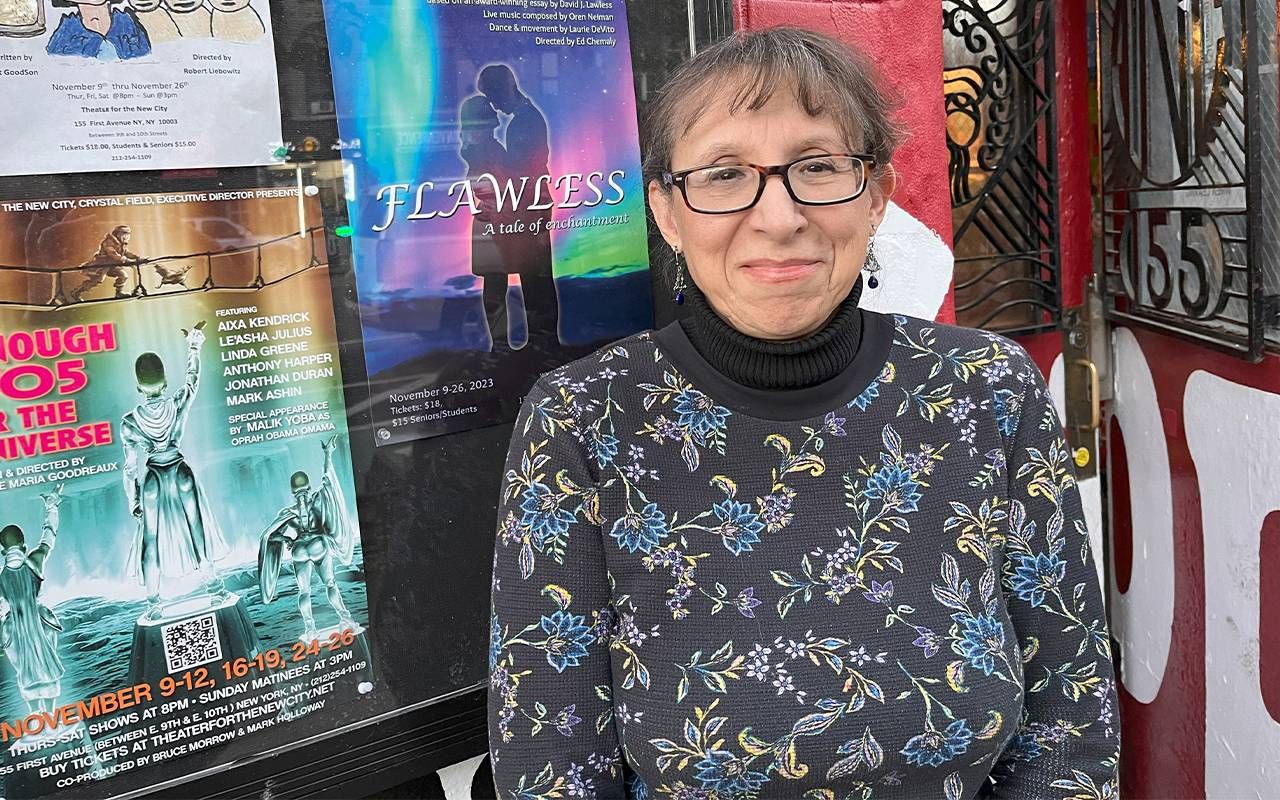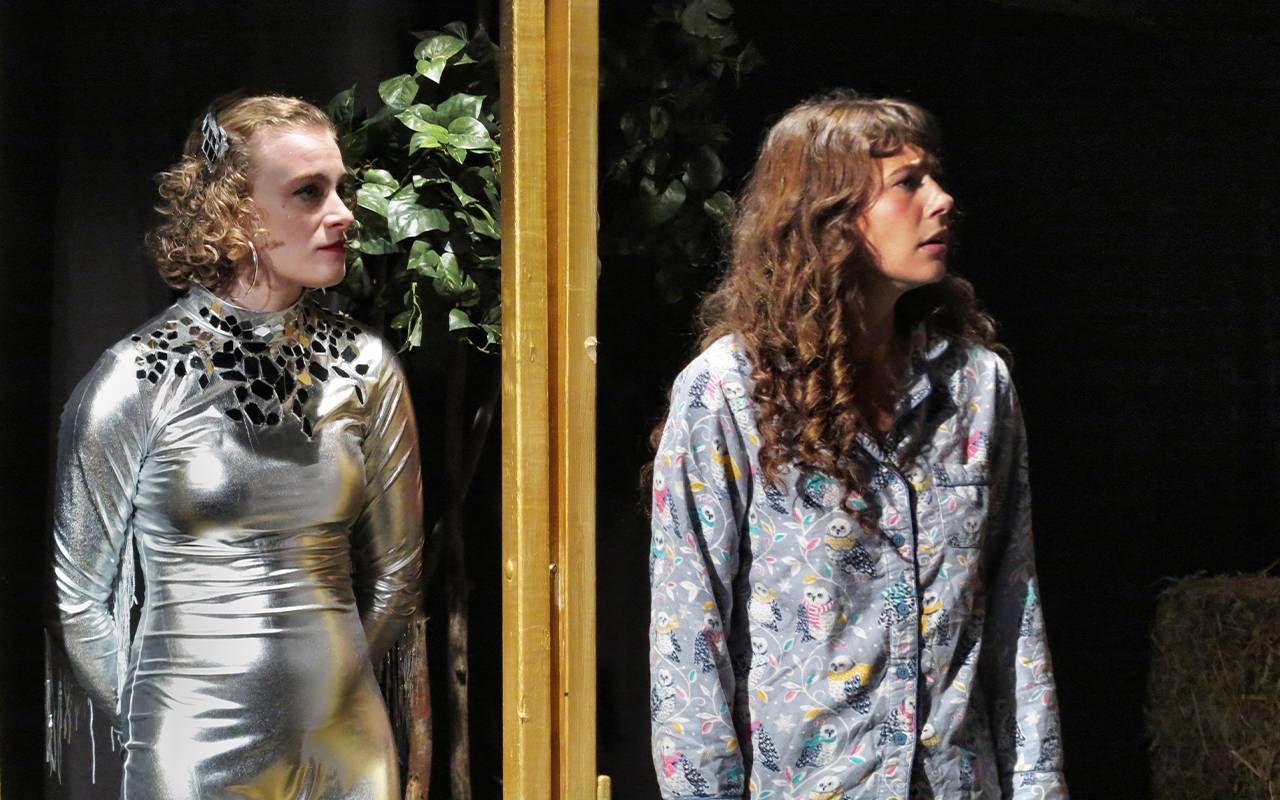She Was Her Mother’s Caregiver for Years — Then a Simple Question Changed Her Life
"What do you like to do?" Patricia Goodson wrote a play.
It started in a way familiar to many caregivers: Patricia Goodson's 79-year-old mother couldn't find her keys. Then she got lost in a Manhattan department store and security had to find her. Goodson put bells on the door so the doorman would know if her mother was wandering out of their apartment. She would call from her job as a manager in a museum gift shop work every few hours to check on her.

Eventually her mom's memory loss progressed to the point where she couldn't use the phone. Goodson put her into adult daycare. But then, somewhere around the age of 83, her mother refused to get out of bed. "She just didn't want to get up. Maybe in her mind it was the safe place to be," Goodson surmised. For over 10 years, her daughter cared for her.
"Each morning I would listen for her breathing and give a sigh of relief," Goodson recalled. Then she launched into the daily routine: mixing blueberries into her mother's breakfast oats, giving her a massage, moisturizing her skin and combing her hair. (After a caregiver hacked off the back of her mom's hair because constantly rocking back and forth had made it so tangled, Goodson was the only one allowed to do that.) And, if things became hard and Goodson needed a hug herself, she would place her mother's arm around her neck and hold on.
"I felt like I had Alzheimer's too, because I was with her all the time."
In 2015, Goodson, who injured her neck from two major work accidents, experienced two mini-strokes from the stress of caregiving and working, and could no longer lift her mother. "I knew I had to get help," Goodson recalls. "I felt like I had Alzheimer's too, because I was with her all the time."
She eventually qualified for minimal assistance but was still her mother's main helper. She went through numerous caregivers who, Goodson noted, did not care. Then finally, was blessed with "three ladies who put 'care' back into the equation." With help, her mother was well-tended and well-loved. Goodson felt supported as well. "She was my Sleeping Beauty," she recalled.
A Social Worker Sets the Stage for Change
During this time, her social worker told Goodson she needed to get her head out of constant caregiving. She asked: "What is it that you like to do?" The question would have life-altering consequences for Goodson.
Goodson loved to write — and the theater — so she volunteered with the Theater for The New City in New York City's East Village as a part-time receptionist and usher. Being surrounded by creative people stimulated her own artistic process.
A social worker told Goodson she needed to get her head out of constant caregiving. She asked: "What is it you like to do?" The question would have life-altering consequences.
"I wondered if I could write something funny and that's how it started," Goodson recalled. She didn't want to write a depressing story about Alzheimer's, so she joined a writing workshop and wrote a play about what might happen to fairytale characters as they got older. "I thought about how my Momma would read me fairy tales and lull me to sleep with lullabies. As a child that had made me so happy."
She started writing her play in 2019. Amazingly, the neophyte playwright struck gold on her first attempt: at the age of 70, she got the play produced in New York City — a huge coup no matter how old you are.
The play's journey to the stage reads like one such magical tale, complete with Fairy Godmother. Goodson showed the play to a couple of people at the theater, which had an emerging artist program. Artistic Director Crystal Field gave her the opportunity to show her work. The day we attended, the house was sold out.
The Play Addresses Contemporary Issues of Aging
Though billed as a comedy, Goodson's play, "Aging Is Not a Fairytale," addresses current societal woes as they befall our favorite fairytale characters when they age. The Queen from Snow White bankrupts the kingdom paying for facelifts, Botox and boob jobs. Drug-addled Sleeping Beauty drifts in, clad in PJ's, desperately searching for Xanax or any substance that will help her sleep.
The voluptuous Three Pigs (clad in coral jumpsuits and wearing matching sty-suitable clogs) sit around, fighting over a Twix bar and idly discuss moving to LA in heavily accented Valley-speak. "I hear there are lots of people who wear false eyelashes and have big asses," one of them observes. They would fit right in.

But it's poor Rumpelstiltskin who brings down the house. He can't spin anymore because he has such horrible wrist pain he can't use his hands. Now he's homeless, without savings.
Touchingly portrayed by Dan Kelley, Rumpelstiltskin has the most moving monologue in the play. He lays out a common scenario: as a young man, he could weave straw into gold, but the fruits of his labor were brutally confiscated from him. "They use me, take my gold and discard me," he says. And now his hands vibrate with so much pain he can no longer do his job.
"To be old!" The Weaver laments. "Do you have a place to live? Can you afford it? Is it safe? Do you have food every day? How's your health? Can you afford your medications?"
The Queen doesn't care about any of her subject's problems and dismisses the poor Weaver. "He needs to make us some gold and get the hell out of here," she declares. "And what if he can't?" the Mirror asks. "If he can't work anymore because his body just can't do it? He can't replace his wrists."
The Queen, alternately intimidated and irritated by Mirror (who she now calls Alexa) demands: "How does the Queen make money?"
"Go Fund Me," Mirror retorts.

But it's Prince Charming who comes up with a doable plan. The Queen's beauty treatments are homegrown, so why not open a spa? The pigs will give manicures, facials and mud baths. They will sell the Queen's organic beauty products in the gift shop. The Prince himself will teach writing, archery and fencing. The now-sober Sleeping Beauty will teach yoga.
And what about poor Rumpelstiltskin, who can't work anymore and just wants a safe place to live? The Prince assures him that homelessness does not exist in the kingdom, and he will be provided with a safe abode.
Daring to Dream — Then Doing It
In a world where few people dare to dream, Goodson has fulfilled hers. "I always loved to write, but I didn't pursue it as a career," she explained. When she was promoted at work, her mom said, "Oh, I'm so proud of you: you became a manager."
"Do what your heart says. Just do it."
"And I said, why would you be proud of me? I'm not doing what I want to do. At all."
Goodson has a message for young people guaranteed to make their parents cringe: "Do what your heart says. Just do it. Don't be like me — I feel like I've wasted how many years in retail."
What's next for Goodson? She wants to give talks to caregivers for people with Alzheimer's about what it's really like. Stay tuned.

